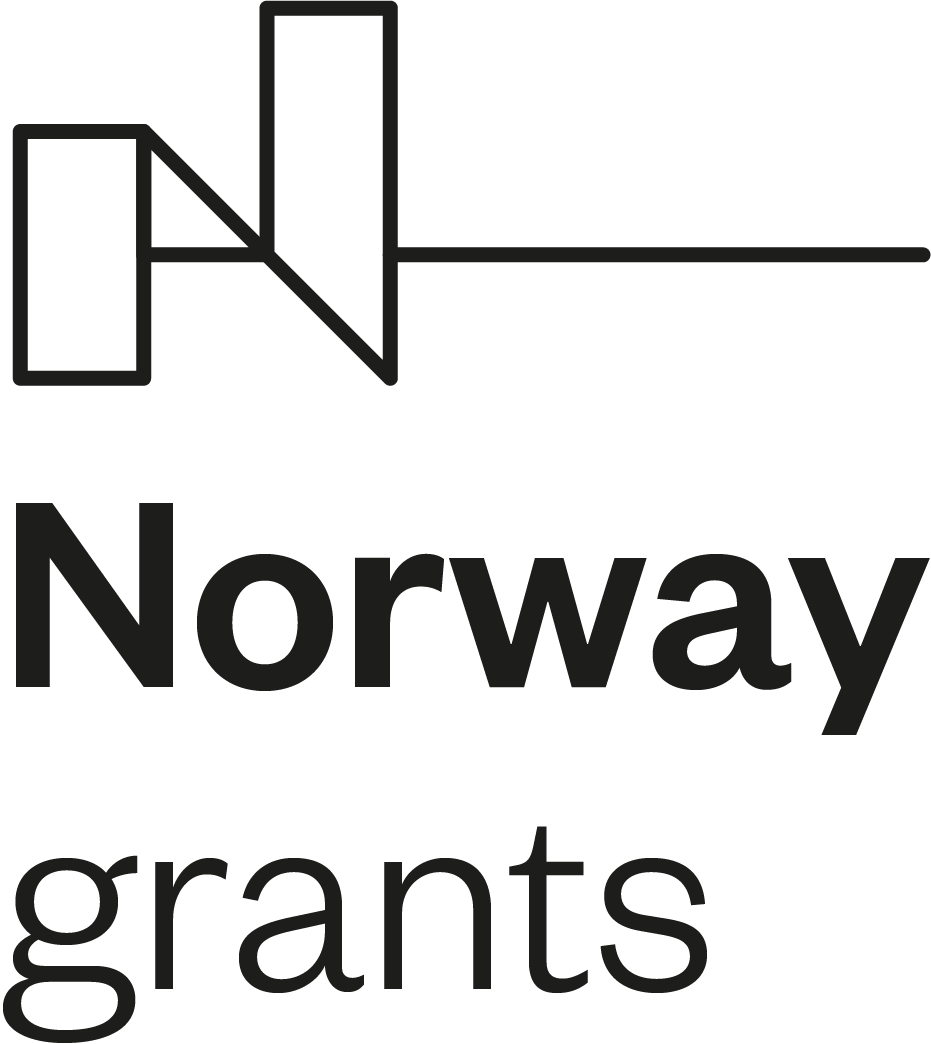the ones we were waiting for - roots.utopia.sk

The ones we've been waiting for (Part 1)
Report on the ÚRMC

Marcela Balogová, Erika Vyhrabáčová, Anna Čonková and Beáta Berkyová from ÚRMC during one of the interviews in Poltár.
Activist synchronicity
Marie "Maryša" Oláhová and Beáta Berkyová lived a similar life story long before they met. Both grew up among the non-Roma and only became more intensely acquainted with Roma culture when they moved in with their husbands' families after they were married. They both became leaders of folklore groups and gradually moved from practicing dances and singing with children to working with their families and eventually entire communities. And working with Roma women became the key to their success in improving the situation in Roma communities. This remarkable synchronicity eventually led them to collaboration and a long-lasting friendship.
Marie has roots in Slovakia, but she grew up in the Czech Republic and didn't know much about Roma folklore. But she always liked it and sometimes played Roma songs. After her marriage she moved to Detva.
Her two daughters brought her to work for the folklore ensemble. They saw him perform at the fair and liked him very much. They became members and later Marie was offered to travel with the ensemble on trips as a chaperone. Gradually she began to devote more time to working with the children until she became the leader of the troupe. Many of these children came from poor families, who at that time lived in the undignified premises of former workers' hostels. She wondered how this was possible and looked for a way to help them. She began to communicate with the authorities and look for a solution. "I jumped in. I didn't know what I was getting myself into at all, but I couldn't leave it at that," Marie says of her step into the unknown. It was only later that she realised she had become an informal social worker.
Beata comes from Kokava nad Rimavicou. She danced in the Kokavan ensemble, which is dedicated to Slovak folklore. She knew traditional Roma life only from visits to her grandparents in Klenovec. Her grandmother lived in a settlement with the friendly name Dolinka. "But it was a beautiful settlement. People there had flowers in front of their houses," Beata says about Dolinka. It was only in Poltár, where she got married, that she started living among the Roma. Married women did not take part in public activities there. But she didn't want to stay only with children and taking care of the household. She was looking for ways to change her life. The man's family didn't like it very much and pressured him to tell her not to get involved. "I started going to the office, talking to the mayor, and immediately the rumors started spreading that I was dating strange men," she recalls of her activist beginnings. She got to work with Roma children and youth slowly. She worked in a shop in Poltár and was visited by her sister-in-law's friends, teenage girls, with whom she started rehearsing songs and dances. At the same time, she learned more about Roma folklore herself. She had never worked with Roma youth before; her goal was to keep the children from wandering aimlessly in the streets. When they began to be invited to perform as a group in other villages, parents, especially mothers, joined in. They liked the fact that they could travel, and that they saw new places and met different people. And during casual conversations, Beata learned about the situation of Roma families. "We went from dancing and cultural events to working with the community and started to address social issues," he says.
First steps
Maryša was looking for active women who would be able to work in their communities like her and Beata. They began to meet regularly and get to know each other. Sometimes they just met for coffee or a beer. Gradually, they discovered that they had similar experiences and problems, and when they talked about them, they were relieved. From the beginning, they followed the motto: "A child is not an obstacle." Children often serve as an argument why Roma women should not be involved in various activities. However, the Union has found a good counter-argument. After all, a woman can take her child with her. Thanks to Maryša's activities, many women had the chance to relax for the first time. They were freed from the household and forgot their troubles or shared them with others and found out that they were not alone in this. Most importantly, together they began to think about how to give their lives the direction they wanted.
Over time, it became clear that many members were eager for the Union to organise activities regularly and frequently. It was no longer just personal meetings. They started to organize sports tournaments. They formed volleyball and soccer teams. The women played football in the squares to show that they didn't always have to just sing and dance. Sometimes they cooked goulash or went to collect garbage in the forest. And in several villages they regularly prepare a programme for Roma Women's Day. Men also help them with these activities. "We don't prevent men from coming among us. Even a man can be a Roma woman," says Beata with a smile. They even have one talented man in the so-called "incubator" (see below). However, the Union still sees working with women as a key condition for positive change in families. "The pillar of the family is the woman, and unless the woman develops, the whole family stagnates," she adds.
However, community work cannot be reduced to organising public events. A less visible part of it is the daily gestures of solidarity that build trust and strengthen the self-esteem of oppressed people. If someone needs to communicate with the local authority or social security, arrange a doctor's appointment, solve a problem with their children at school or get advice on finding a job, thanks to the Union's work they know they have someone to turn to. But a lot of emancipatory work takes place in everyday conversations in the street, over a coffee or a cigarette.
Each according to its own possibilities
Emancipation cannot be forced on people. Some people need more time to get involved, sometimes mistrust plays a role. Andrea Hakelová from Detva, who is the newest member of the Union, says that although she is Roma herself, she grew up in a family that kept its distance from Roma. But when she became more familiar with these women, their activities and their approach to life and self-development, she was intrigued. She especially appreciates the Union's educational activities.
It is important for the women of the Union to show that it is possible to live differently and to ensure that there is regular contact between members to communicate and exchange experiences. "You can give donations to anyone and contribute to charity. That will also help. But the most important thing is that people communicate with each other and help each other. If we didn't communicate with each other, there wouldn't be trust or even friendship between us. And that goes for my non-Roma friends as well. The feeling that someone supports you is no substitute for a one-off gift, no matter how big it is," explains Marie.
Over the ten years, the number of participating towns and villages has increased. Currently the Union is active in Poltár, Detva, Banská Štiavnica, Žiar nad Hronom, Bystrička, Uhorské, Klenovec, Málinec and Rovňany. In each of these municipalities there is a leader who works with other women on the ground. In addition, the Union has a couple of villages in the "incubator". This is used to test the extent to which new women candidates are able to participate independently in, for example, organising activities in their home environment before becoming leaders in their communities. As one of the newest ones, Marcela Balogová, says: "I was only accepted as a leader when I organised the Roma Women's Day at our home in Málinec."
Women against violence and prejudice
The family situation of women from the communities is an important issue for the Union leaders. That is why they recently joined a project on violence against women. It is still a topic that is not talked about much, but here too the Union is breaking down stereotypes. Marcela and Beata recall how their activities have changed the perception of gender-based violence. Whether they are even aware of what domestic violence is. We also approached women from Málinac. At first they all laughed and said that no one is being abused. It is said among the Roma that if a man doesn't beat a woman, he doesn't love her. They couldn't even identify violence. They thought it was a normal part of life. That it's supposed to be like that. But in the end we encountered stories that made us cry."
They also worked with women directly in the field. The women leaders in each village know the situation in the community. They say that victims of domestic violence usually disclose themselves or reveal problems when working with their children. Sometimes clues from people in the neighbourhood help. In the first phase, the woman needs to be given the opportunity to leave the home. That is why the leaders help them to find housing or employment. In several cases they have been successful. However, it has also happened that the woman has returned to the man, cut off contact with her own family (parents, siblings, etc.) and completely submitted to him. It is essential that victims of domestic violence understand their situation. Sometimes it is enough to point out that there are also women in the neighbourhood who manage to bring up their children on their own. But sometimes the circumstances are too complex. "For a woman to confide in us, she has to have some reassurance. She has to get to know us a little bit. For example, I know of one woman I know who is subjected to violence at home. I told her that it's not inevitable. But she refused help. And at home they fight and beat each other and the children watch. And that is the greatest evil," explains Marcela. But the Union's aim is not to break up families and deepen conflicts. "Even then, we talk to the women. We try not to let them beat each other and not to escalate the situation in their household," Beata adds.
The first part of the report was first published on 9 April 2020 in the monthly magazine Kapitál.
Translated by deepl.com. Not edited.